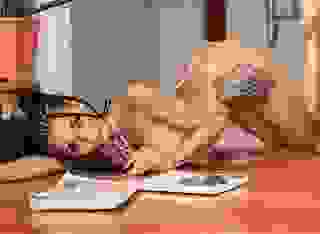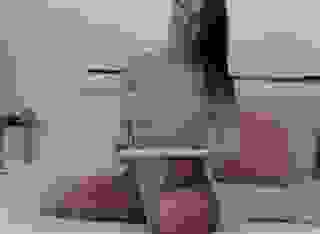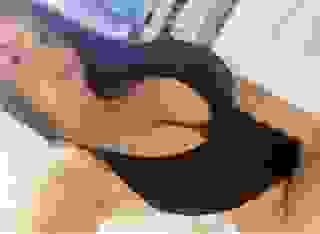Note: You can change font size, font face, and turn on dark mode by clicking the "A" icon tab in the Story Info Box.
You can temporarily switch back to a Classic Literotica® experience during our ongoing public Beta testing. Please consider leaving feedback on issues you experience or suggest improvements.
Click hereBy using a Portuguese/English phrase book, we found the bus station and bought tickets to Afua. It took a while to find a hotel in Afua but we finally did. It was down by the waterfront, and like the DC-3, it had seen better days. Still, it was a place to sleep and that's all we needed. The next morning we put our passports, most of our cash, and all of Mandy's jewelry in the hotel safe with instructions we'd pick it up when we returned. Then, we asked about boats going up river.
Riding the riverboat was much like riding the train from Belem. There were people in business dress, people in more casual dress, and some people in what amounted to rags. That was because the riverboat was the only public transportation between Afua and Manaus. Everybody and anybody with business up river rode the boat or one like it.
The boat had chugged along through a confusing mass of islands that were part of the Amazon. I don't know how, because they all looked the same to me, but the boat captain somehow found his way through them. As the sun was dropping into the trees ahead, the boat turned into the main river. Mandy gasped.
"My God, it's huge."
It was huge. It was so wide, the banks on either side of the boat were just a smear of green on the horizon.
A man in a business suit standing beside her at the rail chuckled.
"We aren't on the Amazon yet. This is one of the two forks it takes to get to the Atlantic."
Mandy turned to him.
"You speak English?"
"Yes, and Portuguese, and a little Spanish. I make this trip about twice a month. Manaus is the factory location of my company. Afau is the export center."
"There's a factory in the middle of the rain forest?"
He smiled.
"People who come to Brazil believe what they see on the television is all there is to Brazil. Yes, we have a huge rain forest with much wildlife, but we also have industry, farming, and ranching. Manaus is a large city not unlike some of yours in America. I would enjoy showing you and your husband some of the sights."
Mandy smiled.
"Rick isn't my husband. We're just two friends traveling together."
The man grinned.
"Ah, I see. I would enjoy a friend as seductive as you. He is a lucky man."
Mandy smiled.
"He's not that lucky. We're just here to see animals and the rain forest and to take some pictures. I'm afraid we won't have time to see much of Manaus. As soon as we can find a boat, we're going up the main river.
"You mean Rio Solimoes. That is the name in Portuguese. It will be an interesting trip. You will see many animals and few cities or towns.
It took three days to reach Manaus during which we had a few more conversations with the man. He directed us to a company that made excursions to the various cities and towns on the Rio Solimoes. He also treated us to dinner the evening we arrived in Manaus.
The next morning we boarded another, smaller riverboat and started up the Rio Solimoes. As we left Manaus and the busy part of the river, wildlife became more easily seen. Pink dolphins sometimes cruised along with the boat. We saw caiman basking on the riverbanks. It seemed as if there were brightly colored birds everywhere, from green parrots to the macaws with their color combinations of red, blue, yellow, and green that screamed at us from the treetops. We were constantly in awe of the many and varied animals we saw at the river's banks. We had seen most of them at the zoo in Chicago, but seeing them in the wild was a completely different experience.
The boat slowly made its way through the myriad of twists and turns and islands of the Rio Solimoes over the next eight days. Mandy and I sat under the canopy of the deck and talked while we watched the water and the shoreline. I found her to be an intelligent woman, and though she seemed to have abandoned makeup since leaving Chicago, still a very attractive woman. That most men would find her to be also a physically desirable woman was a fact of which she was aware. I suppose it was because I was a doctor and she and I were the only people on the boat who spoke English, but she was a little more open with me than she probably would have been in Chicago.
I was kidding her one afternoon about what the man on the first boat had said about her being seductive and said she must be pleased she could attract men. She looked at me and smiled, but there was something else in her smile, a kind of sadness I hadn't seen before.
"I wish I could feel that way, but I don't."
I'd never given much thought to whether women wanted to attract men. The women I'd known made no excuses for the way they dressed and acted. They did so for the purpose of finding a husband.
"You don't feel like you're attractive to men?"
"Men tell me I am but I'm not trying to be that way. I dress like I do because it's the current style and I can't find anything else to buy."
The doctor in me became very interested then.
"You don't have any urge to be with a man?"
"I was with one man long enough to know sleeping with him wasn't something I liked. I still have men as friends. I just don't want to be with a man sexually."
"It might be a medical condition. When did it start?"
"I've always been this way. In high school, all the other girls talked about was sex and how it would feel. They couldn't wait to do it. I listened, but I didn't feel like they did. It just wasn't something I thought or cared about. In college, men kept asking me out, and after a couple of dates would kiss me and try to get me aroused. I didn't feel anything. That's why I'm still single. No man wants a woman who doesn't like sex."
"You matured normally -- no problems with your periods or with any infections?"
She shrugged.
"As far as I know I did. Everything works like it's suppose to that way, and I've never had even a yeast infection."
"Have you seen a doctor and asked him about it?"
"Once. He told me it was all in my head and I should see a psychiatrist. It's not in my head. I know I should want to. I just don't ever have the feeling that I do want to."
I'd read about a similar case when I was in medical school, but I'd never actually seen one. I was interested on a professional basis as well as a personal one. The woman in the case study had been in good health and the doctors were stumped. They had sent her to a psychiatrist as well. His diagnosis was she didn't have any mental issues caused by something like early sexual abuse, any past head injuries, or anything else that could be a cause. He'd come to the conclusion she just didn't like sex and he didn't know why other than that she was probably a lesbian who couldn't accept that fact.
"What about other women?"
"You mean am I a lesbian? No, I'm not. I thought I might be and tried to find out. It was the same. She was a nice woman, but I didn't feel anything."
"Nothing?"
"I had an orgasm, or what I think was an orgasm, but I didn't want to do it again."
"What about masturbation?"
"Almost never, and I have to make myself do it and then only when I'm really stressed out. It isn't something I really want to do. It's just the only way of relieving the stress. Why is that important?"
"Well, if you can have an orgasm, it probably means your body is functional as far as being capable of being aroused. Something else is responsible for your lack of desire."
"Well, I've learned to live with it, I guess. It would be nice to know why I'm like I am though."
I didn't have any answers for her because the medical profession hadn't really studied women's sexuality very much. Kinsey did, but he only identified a scale of sexual preferences, not any causes. Before that, women were either classified as either heterosexual or homosexual. There was the lame clinical diagnosis of "frigid", that that was pretty much a catchall for anything doctors couldn't explain.
We didn't talk about her condition after that. I didn't try because I didn't have any answers and she seemed to have accepted it. We spent the rest of the trip watching animals and taking pictures.
Eight days after leaving Manaus, the boat docked in Leticia, the last city on the Rio Solimoes still inside the border of Brazil. The next day, we boarded an even smaller riverboat and crossed into Peru.
Our excitement increased each day as the boat chugged along. We would end up in Chiriaco, the last city where the river was still navigable by large boats. From Chiriaco, we'd take a smaller boat up the Rio Solimoes until it forked to the north.
A few miles from that fork, the Rio Solimoes became just a narrow stream except for the rainy season. A creek called Rio Pequeno, Spanish for small river, fed into the Rio Solimoes, and the headwaters of that creek was our destination. We'd have to hike through the jungle part of the way to get there, and needed a guide and men to carry our supplies.
Chiriaco was small compared to the other ports we'd stopped at. We had intended to ask at the docks for directions to a hotel. Unfortunately, none of the workers spoke English. We were leafing through out Spanish/English phrase book when a man walked up.
He was obviously a native. His features had the same round contours as other natives we had seen as we traveled up the Rio Solimoes and his skin was fairly dark. Mandy moved a little closer to me and he seemed to notice because he smiled.
"Do not be afraid. I have just not heard English spoken here in quite a while and I was curious. I am Biabo. I can translate for you if you wish."
I explained we were looking for a hotel for the night. He grinned again.
"There is only one, and I will take you there. You will need to eat as well. Once you have your room, I will show you the best place to eat in Chiriaco."
We learned a little about Biabo over dinner. He was of the Nanti tribe, and had been taught English by Christian missionaries who had lived in his village for a time. The missionaries had also taught him something of western culture. He had decided the way of life in his village was not what he wanted. He came downriver and settled in Chiriaco. His occupations had been varied, but he said he had guided some groups of scientists up the Rio Pequeno.
I mentioned we were in need of a guide, and Biabo beamed.
"What do you seek? I hope you do not seek gold. There is no gold. The Spaniards took it all years ago."
He seemed trustworthy, but I wasn't taking any unnecessary risks.
"We thought we might find natives at the headwaters of the river and record some of their culture."
Biabo looked at Mandy for a second, then turned back to me.
"Ah...there are several tribes who live along the river. It might require much walking. They do not stay in one place for very long."
I started to say we were prepared to walk, but Mandy interrupted me.
"Mr. Biabo, I assure you we are both capable of walking anywhere necessary."
She had accented the word "both". Biabo looked a bit taken aback, but he smiled at her.
"I didn't say you were not, only that there would be much walking. Now, did you bring supplies, or must we purchase them here?"
}|{
We met Biabo on the dock the next morning. He pointed to a large canoe made from an entire tree. It had an outboard motor on the back, and several gas cans sat in various places in the boat.
"This is our boat. It does not look like much, but it is strong, stable, and does not need much water to float. We will have a shorter walk by taking it."
The two other men Biabo had brought along to carry our supplies loaded them into the canoe while Mandy and I watched. Half an hour later, we were motoring up river.
The jungle here was wilder and denser than any we had seen before. We heard the howls of the monkeys Biabo called macacos, and saw flights of macaws overhead. The river was less cloudy here, and since we were sitting so close to the water, we saw a lot of fish. Some of those fish looked large enough to eat a small child, but they didn't seem aggressive. Occasionally we would see a group of caiman and some turtles sunning on the bank.
At least once a day, we would see one or more people along the riverbank. Usually they were fishing with cast nets. We had seen this before, but on the Rio Solimoes, the people had been dressed in normal clothing. The people of the Rio Pequeno were barely dressed at all. The men's only clothing, if one could even call it clothing, was usually a simple breechcloth. Often it was only a band which served to secure the man's penis to his thigh.
Women were all bare-breasted and wore either a breechcloth or a skirt Biabo said was made from the inner bark of trees. Children were always completely naked. Mandy remarked that with no clothes they were probably cooler. I asked if she was going to try it, and she just laughed.
"In your dreams. I told you how I feel about men, didn't I?"
The trip upriver was relatively uneventful. Most of our meals were caught as we motored or after we made land for the night. A couple of nights I wasn't really sure what we ate. It was probably better that way.
Five days out from Chiriaco, the canoe grounded hard on the streambed and Biabo announced we would have to walk from this point. Biabo and the other men shouldered our supplies. I carried my notepad and Mandy a camera bag with her cameras and rolls of film. Biabo led us east beside the river.
}|{
After another day of walking, we came to the small rivulet that fed the Rio Pequeno. We had seen no more natives and had nearly given up hope. As they had done the night before, Biabo and the two men cut and lashed small tree trunks between two trees and hung our hammocks from them, each one higher than the next. Mandy's hammock was six feet off the forest floor. Mine was about ten. Biabo's and the other two men had to climb much higher. Biabo explained the hammocks were high to protect us from the animals of the night. We ate and then went to bed.
The next morning, I was lying in my hammock waiting for the men to build a fire when I heard Mandy cry out.
"Ow ow ow ow ow. Something in my boot bit me."
Biabo quickly climbed up to her hammock and peered into the boot, threw it to the ground, then frowned and started climbing up to my hammock. I saw a large, brown spider scurry from Mandy's hiking boot and away into the undergrowth.
"Come down. We must talk."
He looked worried when I stepped onto the ground.
"It was an arana verrante, the spider with no web. This is not good."
"What do you mean, not good?"
"She will probably die. If not, she will be sick for weeks. We do not have enough supplies to last that long, and she would not survive a trip down river."
Mandy had climbed to the ground by then and limped to where Biabo and I stood.
"What was it? It hurts really bad."
I looked at Biabo and he shook his head. I looked at Mandy.
"It was a spider of some sort. Most spider bites are painful but otherwise pretty harmless. We'll rest here today. It'll be better in the morning."
In an hour, Mandy was having trouble breathing and she couldn't walk. Biabo tied her hammock almost at ground level. We put her in the hammock and sat down to wait. Biabo said by night she would either die or start to get better. It all depended upon how much venom the spider had injected into her ankle and how strong she was.
If we'd been in Chicago, I could maybe have done something to help her. I'd have had a ventilator to help her breathing and something for the pain. There in the Amazon, I had nothing. I could only watch and hope.
}|{
None of us heard or saw the man walk into the campsite. I just looked up and he was there, like he'd just materialized out of thin air.
He was different from any other of the native men we'd seen along the riverbanks. His facial features were a little more delicate, his skin lighter, and instead of being naked, he wore a sort of skirt that covered him from his hips to nearly his knees.
Another thing about him was different as well. From his knees to the skirt, and above the skirt and half way up his lower back were black tattoos. I nudged Biabo and nodded in the man's direction.
Biabo called to him. I recognized the Spanish, "Hola Amigo", and the equivalent words in Portuguese because I'd heard them many times during the trip. After that came several attempts in languages that sounded like gibberish. The results were the same. Biabo turned to me.
"I do not know his tribe or language. I have lived all my life here and have spoken with what I thought were all the tribes, but I have never encountered his."
He turned back to the man, pointed to his chest, and said "Biabo, Nanti".
The man smiled, pointed to his chest and said "Tulimanu" and something that sounded like "fanu ala sami". He walked closer, and then pointed to Mandy in the hammock. He cocked his head to one side as if to ask what had happened and more gibberish came from his lips.
Biabo put the fingers of one hand on his other palm and mimicked a spider crawling, then used his middle finger to stab at his palm. The man nodded as if he understood. He pointed to Mandy, then extended his hand and waved his fingers toward his chest.
"He wants us to bring the woman", said Biabo.
Mandy was unconscious by then, and she was just dead weight in the hammock. It took me and the two other men to carry the hammock while Biabo followed the native and cut a wider trail with his machete.
We'd walked for an hour when the jungle suddenly opened up into a clearing. In the center of the clearing was a structure made of tree trunks that served as exterior columns, limbs that formed an arching roof structure, and a thatching of tree bark.
The cleared area was occupied by about twenty people, men and women, and a like number of children. The all came running when we walked out of the trees. The man shouted something at them and they stopped. He then said something else, and one man came forward. He looked at Biabo, and said something. Biabo smiled.
"His name is Tanata, and he speaks Bora. He will translate."
Biabo and Tanata carried on a brief conversation. I assumed Biabo was telling him about Mandy's spider bite. That assumption proved to be correct. Tanata said a few more words, then turned and ran back to the large house. He returned with a very old woman.
The woman lifted Mandy's bare leg and looked at her ankle. It was swollen to at least twice its normal size by then. She touched it and Mandy groaned.
Without saying anything the old woman walked back to the house. I could see her talking with a young girl while looking at objects hanging from the beams that crossed the span of the house. She selected one of them and walked back with the young girl.
In her hand was a small basket woven from tree bark, and had a lid secured by a leather thong. She untied the thong, took off the lid and handed it to the young girl, then tipped it over on her open hand.
When she lifted the basket, a white spider sat quietly in her palm. She gently stroked the spider's back, then walked to Mandy again. Before I could stop her, she'd placed the spider on Mandy's ankle. I saw the spider rear up and then plunge its two long fangs into Mandy's skin.
The old woman gently picked up the spider, placed it back in the basket, and secured the lid again. She then began some sort of chant that went on for about five minutes. When she stopped, she said something to Tanata, and then walked back to the house with the young girl.
Tanata smiled and began to speak. Biabo translated as quickly as he could.
"Bring the woman to the house. She must rest tonight. In the morning, she will be well and in another day, she will walk again. You may spend the time in our house. The women will prepare your food."
I had seen only a few cases that got better soon after a medicine was injected, and none of those had been as dramatic. Mandy wasn't awake yet, but the swelling in her ankle was already receding, and she was breathing a little easier.








